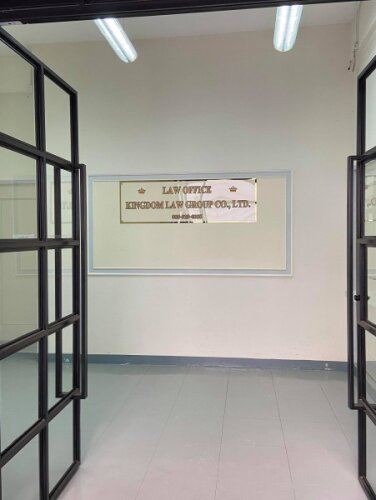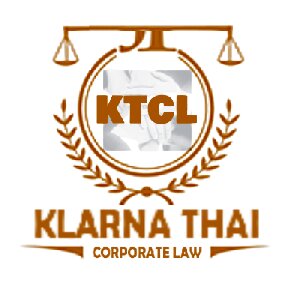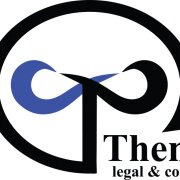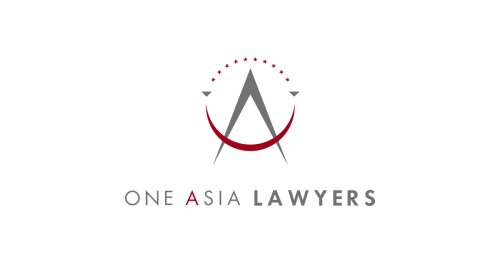Best Corporate Governance Lawyers in Watthana
Share your needs with us, get contacted by law firms.
Free. Takes 2 min.
List of the best lawyers in Watthana, Thailand
About Corporate Governance Law in Watthana, Thailand
Corporate governance refers to the system of rules, practices, and processes by which companies are directed and controlled. In Watthana, a bustling district within Bangkok, Thailand, corporate governance is paramount for both local and international businesses. The legal landscape emphasizes transparency, accountability, and ethical conduct among companies. Laws are designed to protect the interests of shareholders, promote effective management, and ensure that corporations comply with both Thai and international standards. As Thailand continues to attract foreign investment, adherence to corporate governance practices in areas like Watthana has become crucial for maintaining business integrity and trust.
Why You May Need a Lawyer
Engaging a qualified lawyer for corporate governance matters can provide essential support in several scenarios. Some of the most common reasons individuals and organizations in Watthana seek legal help include:
- Establishing a new company or corporate entity and ensuring compliance with Thai laws
- Structuring boards of directors and advising on director duties and liabilities
- Drafting or reviewing internal policies, codes of conduct, and shareholder agreements
- Handling complex mergers, acquisitions, or joint ventures
- Resolving shareholder disputes and issues of minority protection
- Advising on compliance with the Securities and Exchange Commission regulations
- Navigating cross-border investments and foreign business restrictions
- Providing due diligence in investments or corporate transactions
- Assisting with annual meetings, reporting obligations, and other statutory requirements
A corporate governance lawyer ensures that your company operates within the regulatory framework, minimizing risks and fostering confidence among stakeholders.
Local Laws Overview
Corporate governance in Watthana, as in all of Thailand, is governed primarily by the Civil and Commercial Code, the Public Limited Companies Act, and, for listed companies, the Securities and Exchange Act. Some of the key aspects include:
- Board Structure: Directors must act in good faith and prioritize the company’s best interests. Proper composition, appointment, and removal must follow statutory requirements.
- Shareholder Rights: Shareholders must receive transparent information and have rights to attend meetings, vote, and propose agenda items.
- Disclosure and Transparency: Companies are required to maintain up-to-date records, prepare annual financial statements, and fulfill disclosure obligations.
- Regulatory Compliance: Regulated sectors must comply with additional rules by the Securities and Exchange Commission and the Stock Exchange of Thailand.
- Anti-Corruption: There are strict laws against bribery and corruption, especially in dealings with government officials.
- Foreign Business Restrictions: The Foreign Business Act limits foreign ownership in certain industries, demanding careful structuring and compliance.
These local legal requirements ensure the proper functioning of corporations and the protection of all parties involved in governance.
Frequently Asked Questions
What is corporate governance?
Corporate governance is a set of rules and processes that dictate how a company is managed, directed, and controlled, ensuring accountability and fairness to all stakeholders.
Does my company in Watthana need a board of directors?
Yes. Thai law generally requires all limited companies to have at least one director, while public companies must have a minimum of five directors.
How often should my company hold shareholder meetings?
A company must hold an annual general meeting (AGM) within four months of its financial year end to approve audited accounts and discuss other business matters.
Are there restrictions on foreign shareholders?
Yes. The Foreign Business Act restricts foreign ownership in certain business sectors. Carefully review your business activities to determine the specific restrictions that may apply.
What are the common duties of company directors?
Directors must act in good faith, avoid conflicts of interest, comply with the law, and act in the best interests of the company. Breaches can result in personal liability.
How can I protect minority shareholders’ rights?
Thai law offers protection such as the right to call meetings, inspect company records, and seek remedies in court if their interests are unfairly prejudiced.
What disclosures are public companies required to make?
Public companies must regularly disclose financial and operational details, notify regulators of significant changes, and provide timely information to shareholders.
How do anti-corruption laws affect my business?
Thailand has strict anti-corruption laws. All companies must implement measures to prevent bribery and ensure employees are trained to comply with these standards.
Is it necessary to have internal policies for corporate governance?
While not mandatory for all types of companies, having clear policies promotes good governance, reduces liability, and assures stakeholders of your commitment to transparency.
What happens if my company fails to comply with governance requirements?
There can be severe penalties including fines, director disqualification, or even company dissolution. Reputational damage and loss of investor trust are also significant risks.
Additional Resources
For further information and support, you may refer to the following resources and organizations based in Thailand:
- Securities and Exchange Commission (SEC) - Regulates activities of public companies and securities markets
- Department of Business Development (DBD), Ministry of Commerce - Handles company incorporation, licensing, and compliance
- Stock Exchange of Thailand (SET) - Offers guidelines and resources for listed companies regarding governance standards
- Thai Institute of Directors - Promotes best practices and offers director training programs
- Board of Investment (BOI) - Provides information on investment promotion and legal requirements for foreign investors
Next Steps
If you believe you need legal assistance concerning corporate governance in Watthana, consider the following steps:
- Gather all relevant company documents including articles of association, shareholder agreements, and records of board meetings
- Make a list of specific questions or concerns regarding your governance practices
- Reach out to a qualified corporate lawyer with experience in Thai law and a background in local business practices
- Consult with legal professionals to assess your current compliance status and identify any gaps
- Implement any recommended changes or policies to ensure full legal compliance and optimal governance
Prompt and informed legal advice can help safeguard your business, enhance credibility, and promote sustainable growth in the competitive Watthana market.
Lawzana helps you find the best lawyers and law firms in Watthana through a curated and pre-screened list of qualified legal professionals. Our platform offers rankings and detailed profiles of attorneys and law firms, allowing you to compare based on practice areas, including Corporate Governance, experience, and client feedback.
Each profile includes a description of the firm's areas of practice, client reviews, team members and partners, year of establishment, spoken languages, office locations, contact information, social media presence, and any published articles or resources. Most firms on our platform speak English and are experienced in both local and international legal matters.
Get a quote from top-rated law firms in Watthana, Thailand — quickly, securely, and without unnecessary hassle.
Disclaimer:
The information provided on this page is for general informational purposes only and does not constitute legal advice. While we strive to ensure the accuracy and relevance of the content, legal information may change over time, and interpretations of the law can vary. You should always consult with a qualified legal professional for advice specific to your situation.
We disclaim all liability for actions taken or not taken based on the content of this page. If you believe any information is incorrect or outdated, please contact us, and we will review and update it where appropriate.















